By MARLON LEE MONCRIEFFE
Principal Investigator – Picturing the past, present, and future in the imaginations, dreams and journeys taken by young women in Nepal and Rwanda
This blog provides a brief discussion on how young women in Rwanda and Nepal have taken part in cycling journeys to safe spaces (Gayle et al. 2013) for their reflection and conversations about the impact of gender-based discriminatory proverbs on women. How could their understanding of the past informed by their interpretations of these proverbs in the present share new ways of seeing the future roles for women in communities?
The approach taken by the study to create ‘safe spaces’ for this discussion in some ways is similar to that of Harvey et al. (2020). They worked in ‘safe parks’ to ‘provide young people with a stable, safe environment’ (pg.1) supporting them to find ways to have their voice not only heard, but also listened to in a highly hierarchical society.
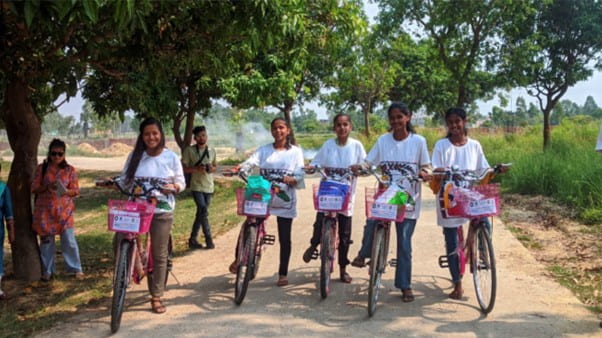
This project recruited twenty five young women from Rwanda (16) and Nepal (9) from MAP associated schools to take bicycle journeys, enabling them to visit wider spaces of curiosity in their localities. In Rwanda, the young women came together with the project at the Nyandungu Urban Wetland Eco-Tourism Park in Kigali for their bicycling journeys and conversations. Whilst in Nepal, the young women came together at the Nocha Pokhari (Notcha Pond) in Janakpur.
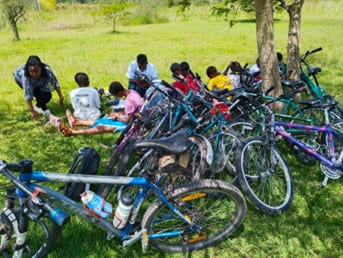
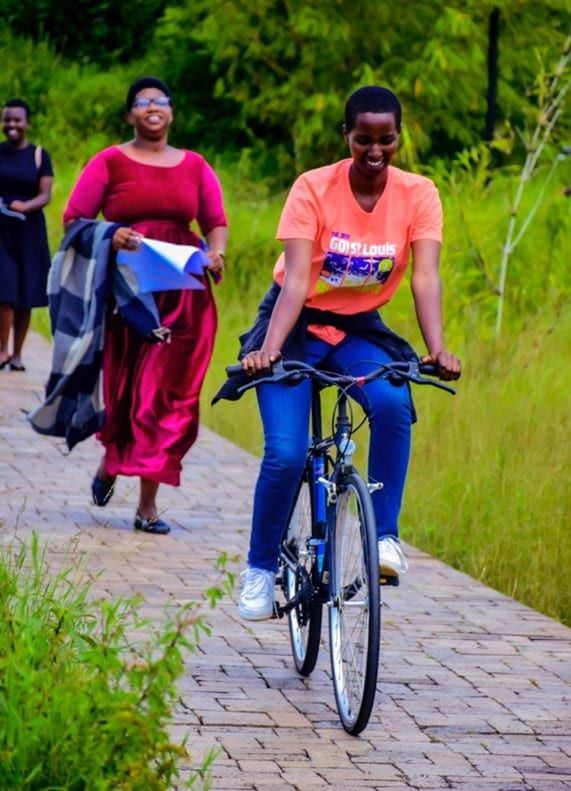
In Rwanda, one of the proverbs discussed by the participants was: Ntaa nkokôkazi ibîka isaâke ihâri. (A hen cannot cluck when a cock is around). This in effect meaning that a women/wife/mother for example has no voice or power in the presence of a man/husband/father.
Five questions were put to the participants to support their reflections and discussions:
- Do you recognise this proverb?
- Have you ever heard anybody say this proverb? If Yes: Who was it?
- What do you think it means?
- Do you think this proverb was true or false in the past?
- What about now and the future: How do you see the meaning of this proverb?
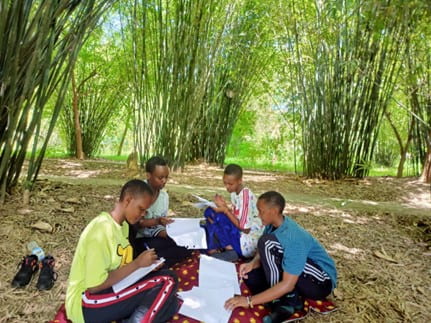
Some of the young women recognised how this proverb framed women as secondary to men. For example, one respondent said:
“I think the past was scary for our grandmothers as they were not allowed to express their ideas.”
There was a similar response from another young woman, who said:
“It is because in ancient time, women were not allowed to express what they think on the development of their families or other general concerns.”
However, there was a general refutation of this proverb by the young women, and sense in their belief that the past is not in the present, neither the future. For example:
“No, it is wrong, people in the past should had understood that men are equal with women.”
“For me, this proverb is discouraging as I believe girls are also capable of every job and they can do any profession.”
“This proverb should be burned because it only supports inequality which might lead to underdevelopment and depression to women and girls.”
“It is not true: as in past time, people used to underestimate women capacity but today things change, boys and girls are equal.”
In Nepal, from our cycling activities to finding safe spaces for conversation, one of the proverbs put to the young women and discussed by them was: “Beta bhel loki lel, Beti bhel feki del” (Love your son, not daughter). Many of the young women knew of this proverb. They shared how they had observed this being played out in society, and they challenged this. For example, one young woman said:
“This proverb is absolutely wrong. It is said that sons and daughters are God’s gift. But in behaviour people discriminate among son and daughter in our society. If we give continuation to these proverbs and mindset, I see our future is dark. If we change these proverbs it makes the country progress and our future bright.”
Some of the young women suggested that older generations of people were unable to challenge this proverb, but the new generation would do.
“This is wrong. But the older generation they do not know about that. This will completely vanish in future because today’s kids are so intelligent.”
“I think it (the proverb) was false. But the older generation might not understand this because they did not have any education before and no exposure. The society was like that.”
“I think it will change in future because women are doing better.”
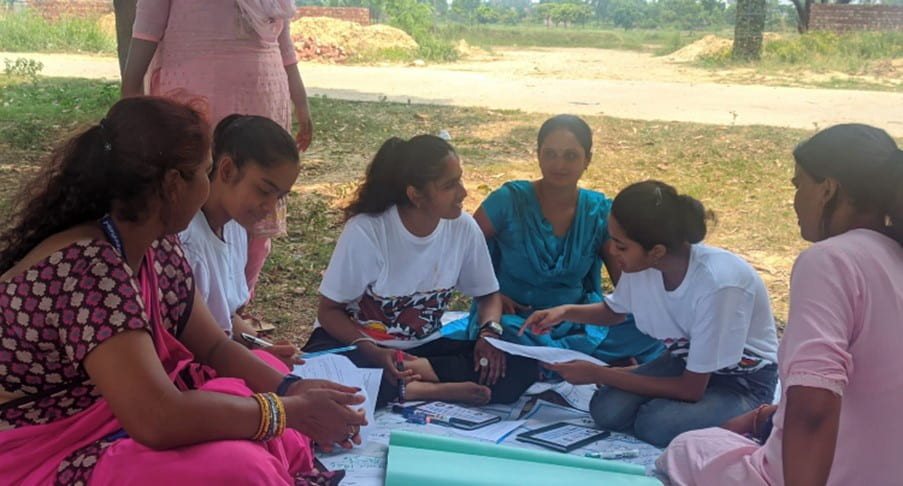

The cycling journeys taken by these young women to these safe spaces seemed to provide a collective sense of emancipation in their bonding, in their play, in their conversations. They have provided clear voice and opinion on how culturally embedded proverbs have been able to frame women in many cases lesser than men. However, these young powerful women have given clear voice and opinion for a change of view on this representation across their families and communities.

References
Gayle, B. M, .Cortez, D., & Preiss, R. W. (2013) “Safe Spaces, Difficult Dialogues, and Critical Thinking,” International Journal for the Scholarship of Teaching and Learning: Vol. 7: No. 2, Article 5. Available at: https://doi.org/10.20429/ijsotl.2013.070205
Harvey, L., Cooke, P., & Bishop Simeon Trust South Africa (2021) Reimagining voice for transrational peace education through participatory arts with South African youth. Journal of Peace Education, 18 (1). pp. 1-26. ISSN 1740-0201 https://doi.org/10.1080/17400201.2020.1819217

Recent Comments